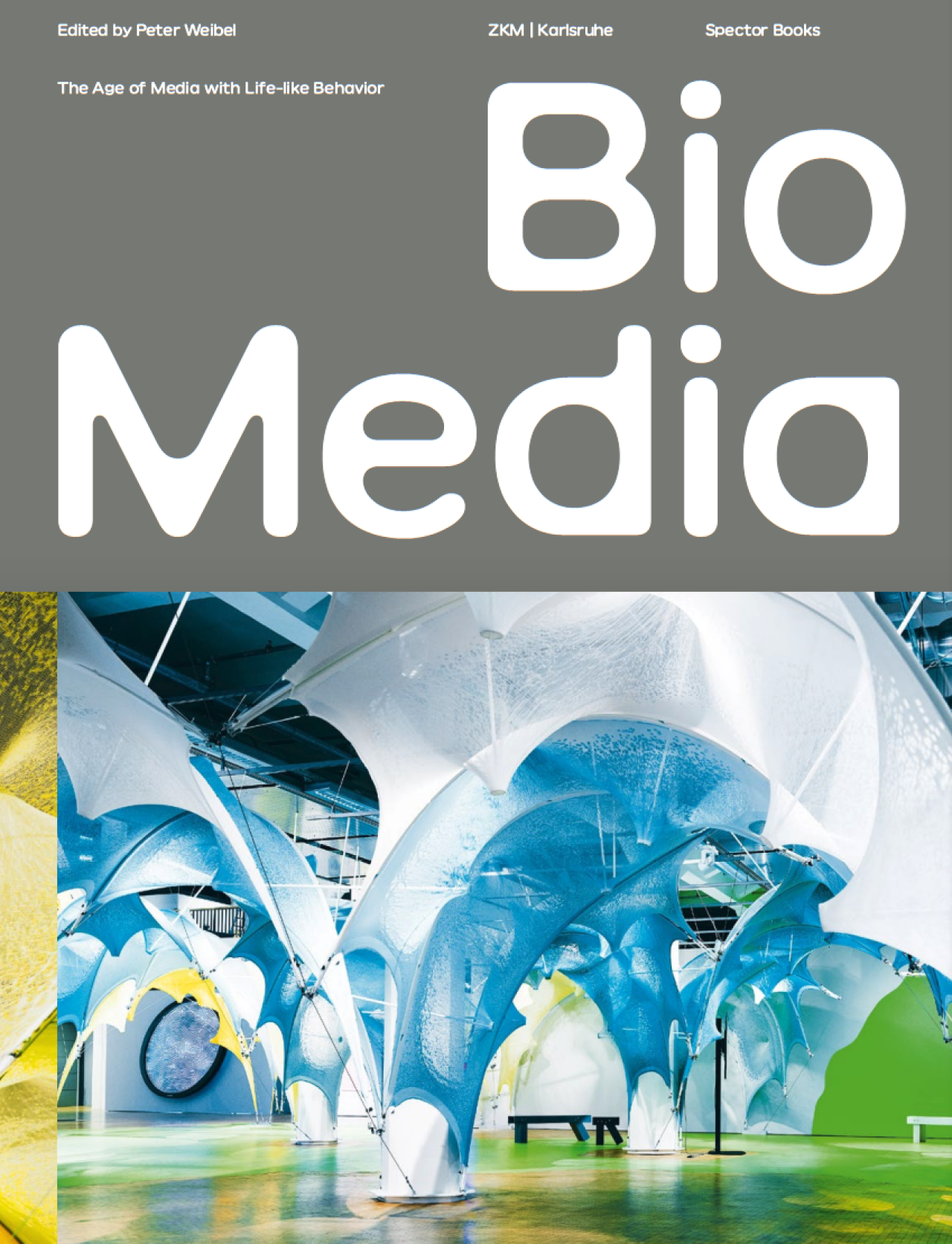- Exhibition catalog
- Anthology
BioMedia
The Age of Media with Life-like Behavior
2023
- Type of publication
- Exhibition catalog
- Anthology
- Author / Editor
- Peter Weibel (ed.)
- Publishing house, place
- Spector Books, Leipzig
- Physical Description
- 320 S.; ca. 360 Ill; 21 x 27 cm; softcover with flaps and banderole
- Language
- English
- Year
- 2023
- ISBN
- 978-3-95905-644-1
- Content
The nineteenth century was the era of moving machines, based on wheels (cars, trains, bicycles). The twentieth century was the epoch of moving images – which also started out being produced with wheel-based machines (film camera, film projector): the first steps towards the imitation of life by movement, sound, and color. With the subsequent introduction of the computer as a universal medium, media systems are characterized by the virtuality of information storage, the variability of image content, and the viability of image behavior. Therefore, the twenty-first century will see the rise of BioMedia. The term BioMedia or biomimetic media does not refer to Bio Art – art made with organic or biological material – but to art made with inorganic material that exhibits organic features: media that show life-like forms of behavior.
The research exhibition »BioMedia. The Age of Media with Life-like Behavior« at ZKM | Center for Art and Media Karlsruhe presented dynamic media systems ranging from computer-generated and computer-simulated systems to complex adaptive robots and interactive installations which simulate various aspects of life beyond movement. These media systems are not living machines, but by virtue of their inputoutput relation and their reactions to the interactions of human and non-human entities, they act as living organisms in artificial and natural ecosystems.
Over sixty artists and institutions have contributed works to the exhibition laying out these paradigmatic shifts in society and the arts. This book focuses on these artworks, which are described in detail in richly illustrated texts, presenting an overview of current developments of algorithms, artificial life, and artificial intelligence in art, but also features scientific essays by Peter Weibel, Samuel Bianchini and Emanuele Quinz, and Ingeborg Reichle.
Production / Corporation / Exhibition
Organization / Institution
Team
Project Management: Ulrike Havemann
Design: Matter Of, Stuttgart
